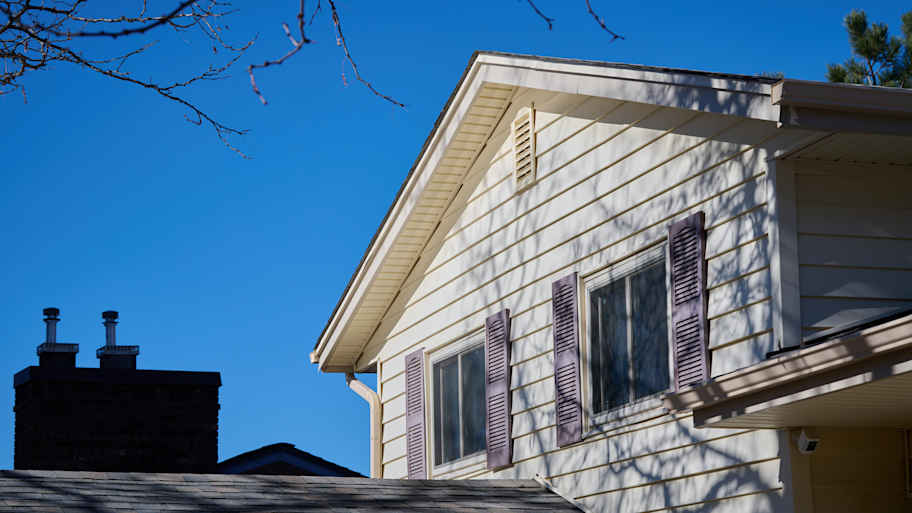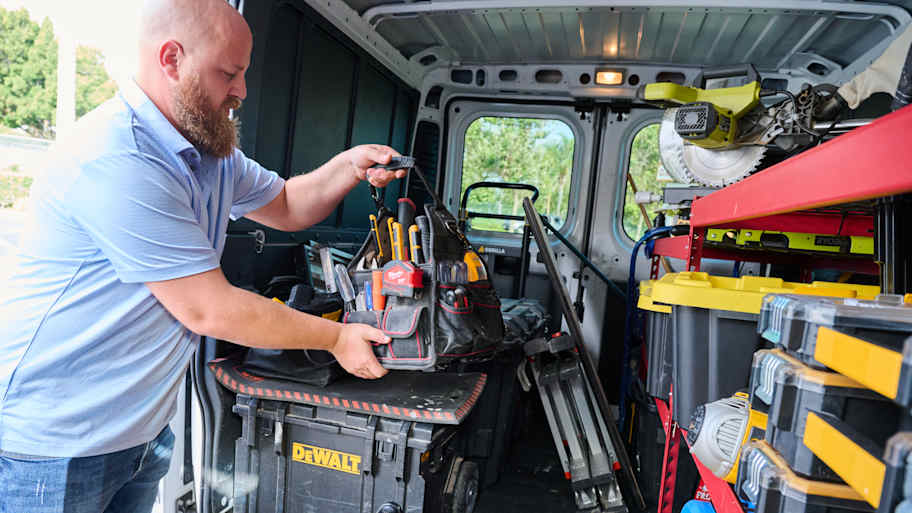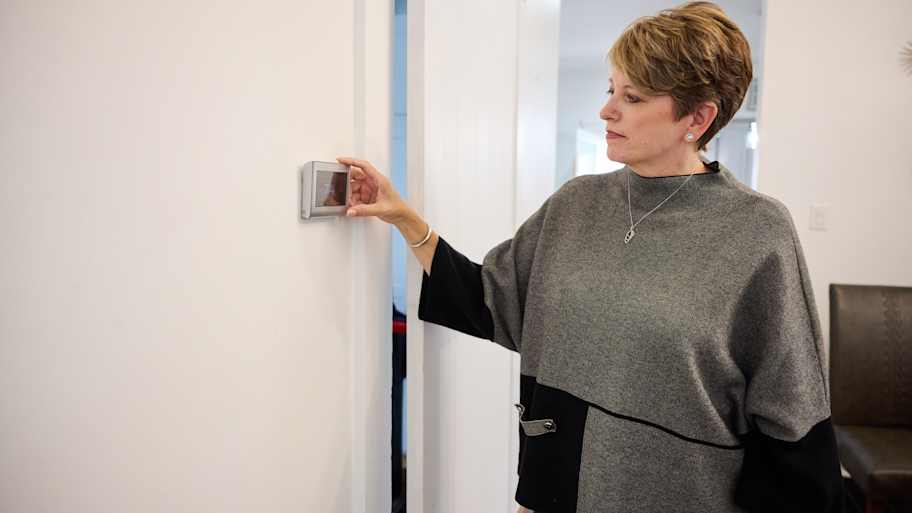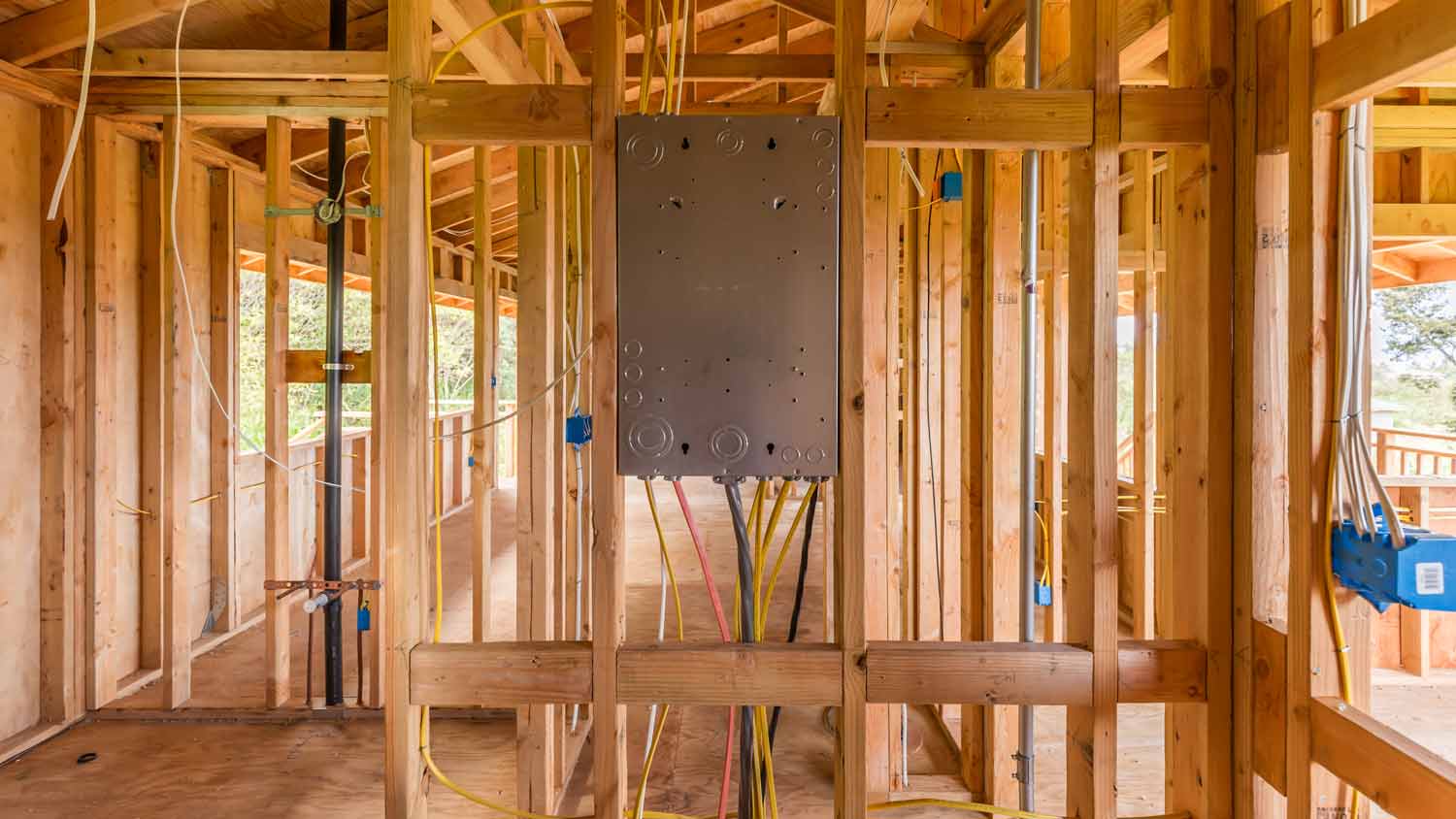How Long Do Smoke Detectors Last?
Learn how to properly maintain a smoke detector and keep your family safer


Smoke detectors last up to 10 years, at which point it’s best to replace them for your safety.
Replace smoke detectors that chirp constantly, fail a test, go off for no reason, or have been recalled.
Smoke detectors can cost $10 to $50 per detector depending on the features.
Knowing how long smoke detectors last is important information for every household. You need to test and replace faulty smoke detectors regularly for the health and safety of you and your family. In addition, it’s a requirement in most states for residences and rental properties to have working smoke detectors. Find out how long the average smoke detector lasts and how to test its functionality for peace of mind.
Smoke Detector Life Expectancy
Most smoke detectors last 10 years, according to the National Fire Protection Association (NFPA). The life expectancy depends on the type of smoke detector you have. Over time, dust gathers inside smoke detectors, wearing down the sensors. Older smoke detectors are less sensitive, so you may not have enough time to escape when the alarm goes off when there’s a fire. They are also more susceptible to electrical corrosion.
Even if your smoke detector hasn’t reached the 10-year mark, you should replace it if it chirps after you’ve replaced the batteries (or if the alarm fails to sound when you perform the recommended monthly test). Replace connected smoke alarms all at once, even if some are still working. A home security pro or an electrician can help you get your new smoke detectors installed.
Smoke Detectors With CO Detectors
Smoke detectors with CO detectors last about five to seven years and offer added safety by detecting both smoke and carbon monoxide (CO) gas. If a smoke detector also contains a CO detector, it will likely need replacement sooner. CO detectors have a limited life span due to the sensitivity of their sensors. Following the manufacturer's guidelines and regularly testing and replacing these dual detectors is crucial to ensure proper functioning and protect against potential hazards.
Hardwired vs. Battery-Operated Smoke Detectors
Battery-operated detectors rely solely on batteries and last five to 10 years before they need a replacement. Hardwired detectors are connected to the electrical system and commonly have a backup battery that lasts around one to two years.
Deciding where to put smoke detectors depends on the type of smoke detector you choose. While hardwired detectors offer continuous power, battery-operated ones are easier to install and suitable for areas without access to electricity. However, it’s super important to replace their batteries in a timely manner for optimal performance.
| Smoke Detector Type | Life Expectancy (Years) |
|---|---|
| Combo smoke and CO | 5–7 |
| Battery-operated | 5–10 |
| Hardwired | 1–2 |
How to Maintain Your Smoke Alarms to Keep Them in Working Order
How long do smoke detector batteries last? The U.S. Fire Administration (USFA) encourages people to replace smoke detector batteries (or the backup batteries if they have hardwired smoke alarms) at least once a year and to test the alarms monthly to ensure none need to be replaced.
Signs It’s Time to Replace Your Smoke Detector
Here’s how you know if a smoke detector is going bad and when you should take action.
You Hear a Chirping Sound
A smoke alarm that needs attention will chirp for a long time, sometimes indefinitely, if it’s hardwired to your electricity. But you’ll want to make sure you take action ASAP once you hear that sound because it means the batteries in the smoke detector are going bad and need to be replaced.
It’s More Than 10 Years Old
How long do hardwired smoke detectors last? As mentioned above, age can be a big indicator that it’s time to replace a smoke detector. It’s pretty simple to check the age of your smoke detector. Take a look at the back of the alarm up close. A manufacturing date will tell you when the alarm was made. If that date was 10 years ago or more, it’s time to replace it.
Do this same check on all the smoke alarms in your house, as many homes have had all their smoke detectors installed around the same time. Note: If your smoke detector is on a high ceiling, you may need to call someone for the job.
It Fails a Test
To test your smoke alarms, follow these simple steps:
Alert everyone in your home about the test.
Press and hold the "test" button on the alarm until you hear a loud siren sound.
Observe if the alarm produces a strong, clear noise.
Repeat these steps with all smoke alarms in your house, including those with CO detectors.
If you don't hear the sound, immediately replace the batteries or the entire alarm unit.
Regularly repeat this test monthly to ensure your alarms function correctly.
It Goes Off for No Reason
There are many reasons why your smoke detector is going off even when there’s no fire or smoke. Once you’ve ruled out other issues like high humidity, low batteries, bugs, chemicals, or dust that could trigger the alarm, you likely need a new unit.
Alarm Parts Have Been Recalled
If your smoke detector manufacturer recalls the unit, you should replace it as soon as possible. You’re likely to hear about large-scale recalls on the news, but you can also check the manufacturer’s website or call them for any updates. Often, the recalls are because the alarm fails to go off in the event of a fire, so don’t delay taking care of it.
Cost to Replace Hardwired Smoke Alarms

You can replace hardwired detectors if you can reach them and have skills sufficient to replace a light fixture. (Be sure to turn off the electricity at the breaker box first.) Otherwise, you need to figure out who installs smoke detectors. Your best bet is to hire an electrical company near you or an alarm service company to do the job.
The cost to replace a smoke detector can vary widely, depending on where you live, the type and number of units you need to replace, where they are, and the condition of the wires. A smoke alarm can cost as little as $10 per unit for a basic model or as much as $50 per unit for a wireless or hardwired smoke alarm with a built-in carbon monoxide detector.
A local home security company can do the installation for you if you prefer this peace of mind. These service providers charge $35 to $40 per detector plus a $50 service charge.
8 Important Fire Safety Tips to Protect Your Family and Home
These fire safety tips from the NFPA will help you and your family make a plan and stay safe.
Install smoke alarms inside and outside each bedroom and sleeping area. Install alarms on every level of the home, including the basement. (Large homes may need extra smoke alarms.)
Interconnected smoke alarms—whether hardwired or wireless—are best because when one is activated, they all sound.
Test all smoke alarms at least once a month. Simply press the test button to be sure the alarm works.
There are two types of smoke detectors. Ionization smoke alarms are quicker to warn of flaming fires, whereas photoelectric alarms are quicker to warn of smoldering fires. It’s best to use some of both types throughout your home.
A smoke alarm should be on the ceiling or high on a wall. Install wall-mounted alarms no more than 12 inches from the ceiling to the top of the alarm.
Don't install smoke alarms near windows, doors, or ducts where drafts might interfere with their operation. Keep alarms at least 10 feet from a stove to reduce false alarms.
Make sure everyone in your home knows how to respond if they hear a smoke alarm.
Follow the manufacturer’s instructions for cleaning smoke detectors.
Don’t place smoke alarms too close to fans or air ducts when mounting them. Moving air can displace smoke from the sensor. You also don’t want your alarms right by the kitchen stovetop or bathrooms. Smoke from cooking and steam from a shower can set off an alarm.
Frequently Asked Questions
You should change the batteries in your smoke detectors at least once per year. Mark it on your calendar or make it a holiday or birthday tradition so that you always remember it. You should also be testing your smoke alarms monthly to ensure they’re working properly and can alert you in case of an emergency.
There are a few reasons why your smoke detector may be beeping. For one, make sure the batteries you use are fresh. If they are, look at the smoke alarm's manufacturing date. If it’s more than 10 years old, this could be the detector's way of telling you that you need to replace it. You may also have tripped one of the test buttons or another setting, so consult your manual for more info.



.jpg?impolicy=leadImage)

- Home Generator Repair
- Lamp Repair
- Electric Repair
- Generator Installation
- TV Antenna Services
- Emergency Electricians
- Commercial Electricians
- Attic Fan Installation
- Attic Fan Repair
- Exhaust Fan Installation
- Electric Inspectors
- Subcontractors
- Electrical Construction
- EV Charger Installer
- Chandelier Installation
- Doorbell Installation
- Bathroom Fan Installation
- Ring Installers
- Electrical Panel Upgrade
- Where to Put Smoke Detectors Around Your Home for Better Fire Safety
- Who Can Install Smoke Detectors in My Home?
- Carbon Monoxide Detectors vs. Smoke Detectors: Pros, Cons, and How to Choose
- What Does It Mean When My Smoke Detector Flashes Red?
- How to Stop a Smoke Alarm from Beeping
- Who to Call for Smoke Damage After a House Fire
- How to Get Smoke Smell Out of a House Fast After a Wildfire or House Fire
- 11 Ways to Get the Cigarette Smell Out of Your Home For Good
- How to Check Your Attic Ventilation With a Smoke Test
- Fall Home Maintenance Checklist: 20 Must-Do Tasks











